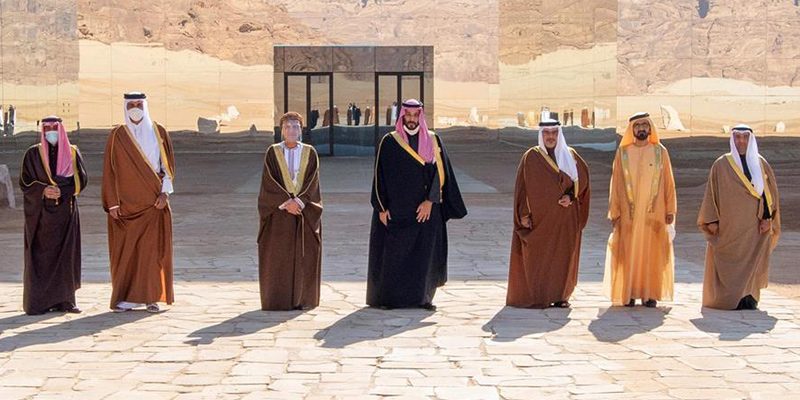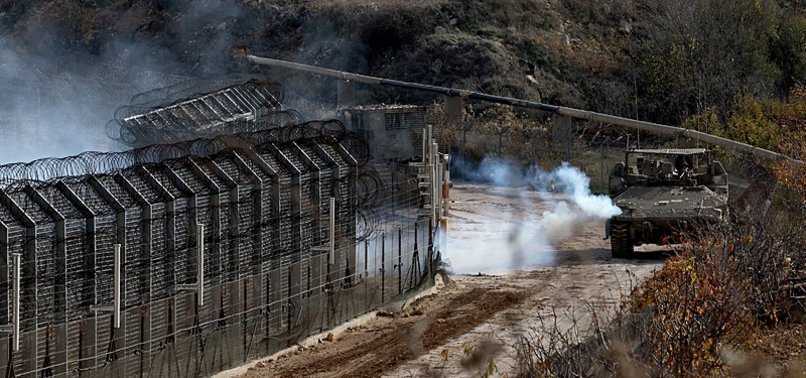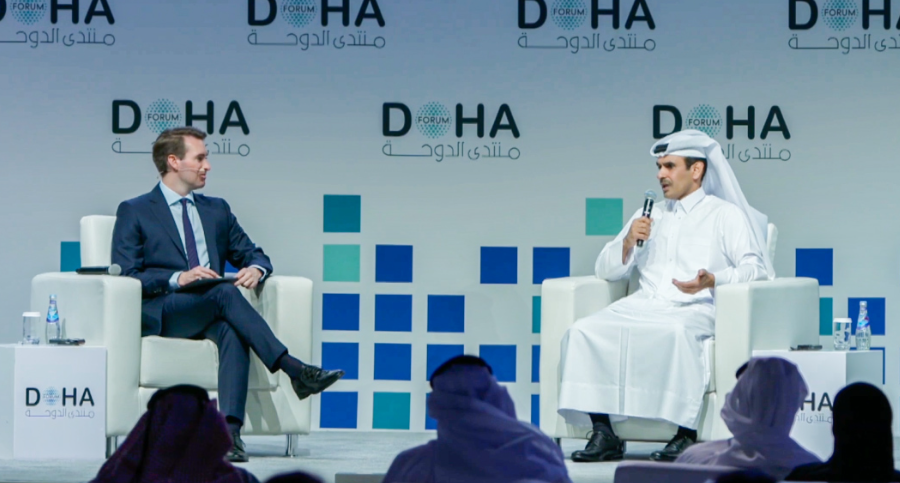This month’s Gulf Cooperation Council (GCC) summit at the Saudi heritage site of Al-Ula marked a watershed in the history of relations between Gulf Arab states. The accord which resulted in Saudi Arabia, the United Arab Emirates (UAE), Bahrain, and Egypt ending their siege of Qatar in exchange for Doha freezing legal action against these four blockading states provides an opportunity to restore the GCC’s status as a relevant sub-regional institution. Given the uncertainties surrounding the future of post-Trump US foreign policy, the COVID-19 pandemic, and continued turmoil throughout the Middle East, there could not be a better time for Gulf Arab reconciliation.
Nonetheless, it is no secret that deep divisions within the GCC will continue because the root causes of the three-and-a-half-year Gulf crisis remain unresolved. The GCC’s Qatar rift remains a decades-old reality stemming from Gulf Arab states having different perspectives on sensitive issues pertaining to Iran, Turkey, the role of media in society, and debates about the appropriateness of giving Islamist factions space in Arab countries’ political arenas. At the same time, there are also rifts within the anti-Qatar bloc which appear increasingly clear in the aftermath of the Al-Ula summit.
Read also: Key points from Al-Ula declaration ‘unity’ statement
It is fair to conclude that of all Quartet members, the UAE was least pleased with the Al-Ula communique. On the day of the summit, the Middle East expert Hussein Ibish contended, “Left on its own, the UAE probably would have continued the boycott until Qatar agreed to truly reshape its foreign policy with regard to Islamism.” At this juncture, the odds are good that Riyadh and Abu Dhabi will move differently in relation to Doha. While Saudi Arabia plans to reopen its embassy in Qatar, Emirati officials have made it clear that despite their country reopening all its land, sea, and air entry points to Qatar, Abu Dhabi will not be restoring diplomatic relations with Doha until greater trust comes into bilateral ties. “Some issues are easier to fix and some others will take a longer time,” explained the UAE’s Minister of State for Foreign Affairs Anwar Gargash at a virtual news conference on January 7. “We have a very good start … but we have issues with rebuilding trust.”
One of the most interesting questions that have analysts scratching their heads, is where do Saudi Arabia and the UAE’s divergent paths vis-à-vis Qatar leave Bahrain?
As a consequence of the financial and security assistance which Riyadh and Abu Dhabi have given Manama during and after the “Arab Spring” unrest of 2011, Bahrain has relinquished a significant amount of national sovereignty to its close GCC allies. Within this context, basically all major foreign policy decisions that Manama makes, require the green light from Saudi Arabia and the UAE. Therefore, Bahrain faces tough dilemmas when these two Gulf powerhouses disagree on controversial issues impacting the Gulf.
Signs are emerging that Bahrain is most aligned with Abu Dhabi vis-à-vis the issue of reconciliation (or perhaps, more accurately, the lack of it) with Qatar. Nine days after this month’s GCC summit, Bahrain’s Ministry of Interior released a statement accusing Al Jazeera of putting out “baseless” reports about Zuhair Jassim Mohammed Abas, an inmate in Bahrain serving a life sentence due to his alleged role in terrorism. The statement ended with a call on the public “to seek information from official sources and avoid malicious rumours.”
Possibly in addition to Qatar, the Israeli and Syrian dossiers are also areas where Bahrain aligns far more closely with the UAE than with Saudi Arabia. Manama’s re-normalisation of diplomatic ties with the Damascus regime in December 2018 and its formalisation of full-fledged relations with Tel Aviv in September 2020 are cases in point. With Saudi Arabia, at least as of now, refusing to re-embrace the Syrian government’s legitimacy while also nominally standing by the Arab Peace Initiative, it is fair to contend that in such instances the Emiratis (not the Saudis) have proven to have the most clout in Manama.
“There has in recent years been an increase of UAE influence in Bahrain which has, to a certain extent, supplanted the Saudi networks of political and economic leverage of longer standing, especially with the death of Bahrain’s former Prime Minister, Sheikh Khalifa bin Salman, and the growing policymaking prominence of the sons of King Hamad,” said Dr. Kristian Coates Ulrichsen a Middle East fellow at Rice University’s Baker Institute for Public Policy. “It will be worth watching Bahrain not only for the degree of adherence (or not) to the resolution of the GCC rift but also for whether voices closer to Abu Dhabi prevail over the clear Saudi preference, which is to move forward and put the rift behind.”
It is safe to argue that throughout the post-al-Ula period, Bahrain will be the most important to monitor in terms of cracks within the anti-Qatar Quartet. Possibly if Abu Dhabi has its way, Bahrain will come to serve as a saboteur in GCC reconciliation.
Giorgio Cafiero (@GiorgioCafiero) is the CEO of Gulf State Analytics (@GulfStateAnalyt), a Washington, DC-based geopolitical risk consultancy.
The views and opinions expressed in this article are those of the authors and do not necessarily reflect the official policy or position of Doha News, its editorial board or staff.
Follow Doha News on Twitter, Instagram, Facebook and Youtube







